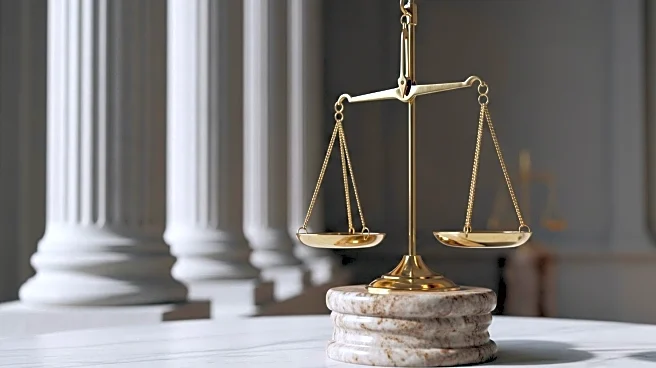What's Happening?
The US Supreme Court is set to begin a new term, with the nine justices preparing to tackle cases that could significantly impact American society and democracy. Jonathan Freedland, in a podcast, discusses the motivations behind the justices' decisions and the apparent partisan nature of the court. The podcast features Prof Leah Litman, who provides insights into the court's shift towards partisanship and questions whether the court can return to a more balanced state.
Why It's Important?
The Supreme Court's decisions have far-reaching implications for U.S. politics and society, affecting everything from civil rights to economic policies. The perception of the court as partisan could undermine public trust in the judiciary, which is supposed to uphold the Constitution impartially. This shift could lead to increased political polarization and influence legislative and executive actions, impacting governance and public policy.
What's Next?
As the Supreme Court begins its new term, stakeholders including political leaders, legal experts, and civil society groups will closely monitor the cases and decisions. There may be calls for reforms to address perceived biases, and the outcomes of these cases could spark debates on the role and structure of the judiciary in the U.S.
Beyond the Headlines
The discussion raises ethical questions about the judiciary's role in a democratic society and the potential need for reforms to ensure impartiality. The long-term implications could include shifts in how the public perceives the judiciary and its role in maintaining checks and balances within the government.









